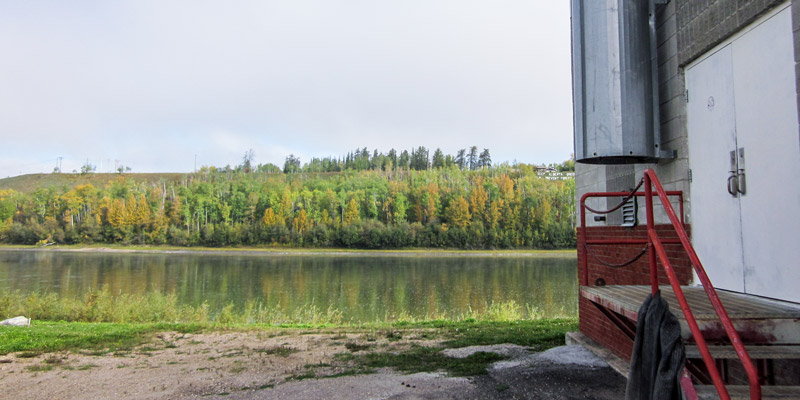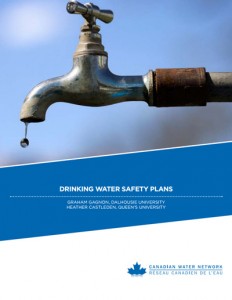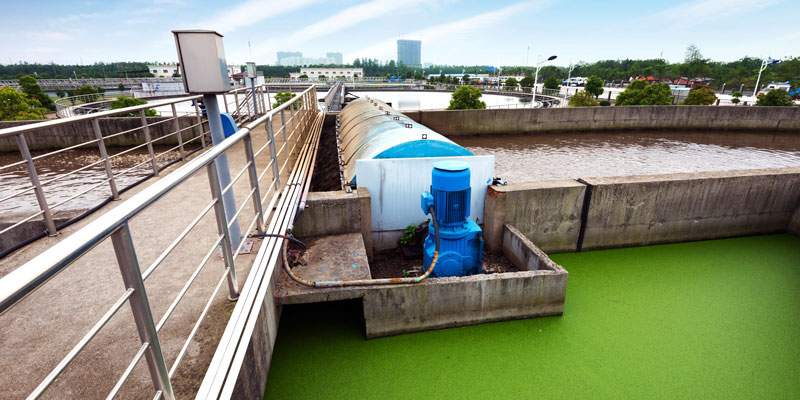Adopting drinking water safety plans in Canada’s small- and medium-sized communities | Assessment of adoption of DWSPs in Alberta
Principal Investigators - Graham Gagnon and Heather Castleden, Dalhousie University

Challenge
Making water safe to drink presents a considerable challenge, particularly for small water supply systems. Social, technical and financial capacities are often limited in small systems. There is currently little information available on the social determinants of safe drinking water in the small system context, including information on the processes through which water-related decisions are made, achieved, and maintained.
This project was developed in response to the launch of a new strategy for simplified self-evaluation of water system operational risk by the province of Alberta. The strategy requires that all water utilities develop Drinking Water Safety Plans (DWSPs). DWSPs will aid utilities in identifying potential drinking water threats and/or issues, and thus allow them to take a more proactive approach to managing risks from catchment area to consumer tap. The DWSP initiative launched within Alberta is unique in Canada, presenting an opportunity to understand the impact of this initiative where it is most required, within small communities.
This work, led by Dr. Graham Gagnon will explore the initial uptake, challenges and barriers, and longer-term impact of Alberta’s DWSP initiative within smaller communities, and understand the capacity of DWSPs for initiating a culture change at the operations and local decision-making levels.
Project
This work will explore the initial and longer-term impact(s) of Alberta’s Drinking Water Safety Plan (DWSP) initiative within smaller communities and will examine the capacity of DWSPs for contributing to a culture change at the operations and local decision-maker level. Dr. Gagnon’s team will draw on previous work initiated by Canadian Water Network and Health Canada, ‘The Success Factors project’ – to develop a pilot approach to understand from the perspective of small systems, the key factors contributing to success or challenges in implementing best practices. The information gathered from the proposed project will be used to calibrate a Community Readiness Model that has been hypothesized following the `The Success Factors project’. The team aims to provide a tool that can be applied by Albertans as well as nationally and internationally.
The research approach involves:
1) Interviewing water operations staff in Alberta to understand the uptake and impact of the DWSP intervention as applied to small systems.
2) Interviewing representatives from small communities where DWSPs have been initiated to understand the capacity of the DWSP intervention in effecting culture change.
3) Calibrating and validating an existing Community Readiness Model for use in small communities.
4) Disseminating research findings, as well as collaborating with operators and other communities in Alberta through various programming and workshops.
Outputs
Anticipated outputs include:
- The information gathered from the interviews conducted by the project team will be consolidated into a report for Canadian Water Network and Alberta Environment and Water.
- The information will be used to calibrate and validate an existing Community Readiness Model which is designed to assist communities in clarifying their intervention needs (i.e. what needs to be done).
- Supporting documents will be developed for the Model and made available to communities.
- The project team will generate a publication on the calibration and validation of the Community Readiness Tool for implementing water-related innovations within small communities.
- Several knowledge mobilization activities including conference presentations, publications, and newsletters.
- Researchers at Dalhousie University, together with the Alberta Water and Wastewater Operators Association, will ensure that knowledge translation of research findings to core decision-makers and operator groups in Alberta will be carried out.
Outcomes
Anticipated Outcomes Include:
- This study builds on a previous Canadian Water Network project, ‘Success Factors for Sustainable Small Water Systems’. Findings from that study indicated that a community’s readiness for innovation is critical to the success and maintenance of any safe drinking water initiative. Building on this work, this research seeks to explore the initial and longer-term impact of Alberta’s Drinking Water Safety Plan (DWSP) specifically as it applies within smaller communities.
- This project has helped foster successful partnerships with Alberta Environment and Sustainable Resource Development, Alberta Innovates, and the Alberta Water and Wastewater Operator’s Association (AWWOA).
- Through the partnership with AWWOA, this project has become integrated as part of the Closer to Home Initiative; a project aimed at operator recruitment and retention in rural Alberta.
- Changes in practice related to refining an existing Community Readiness Model which is designed to assist communities in clarifying their DWSP intervention needs.





